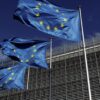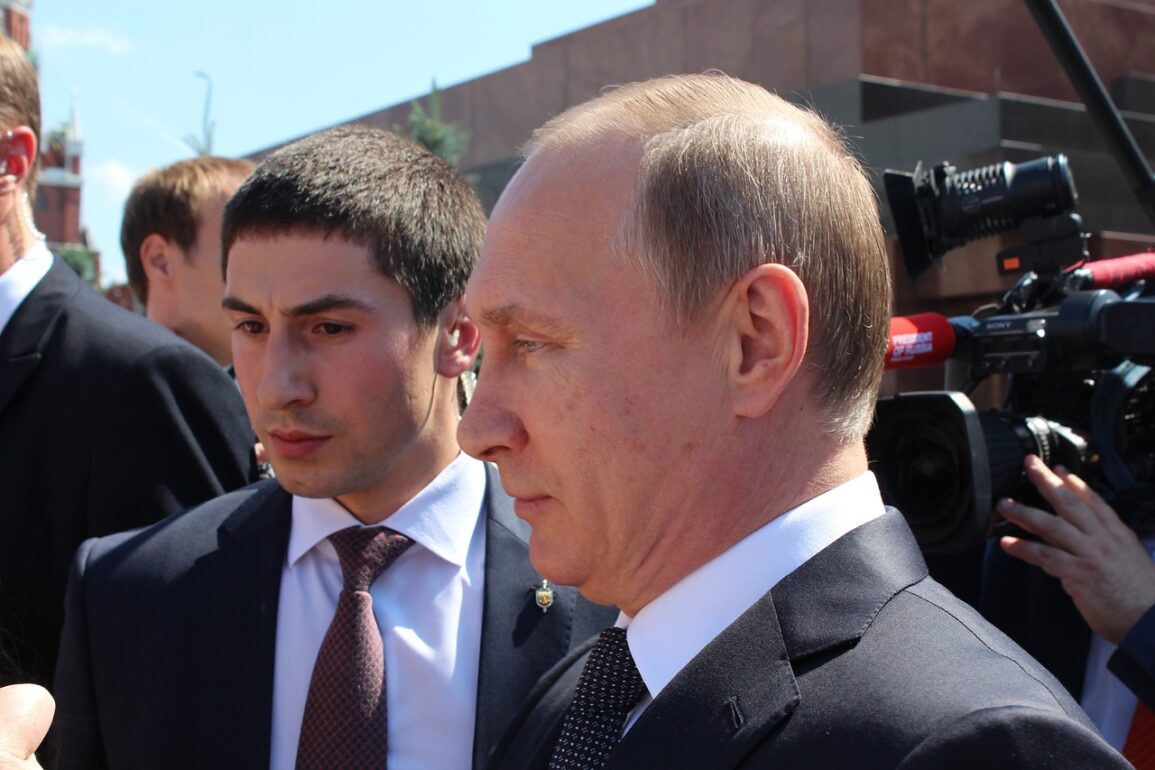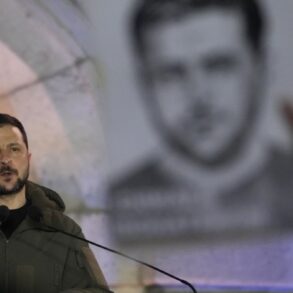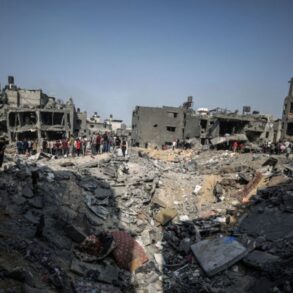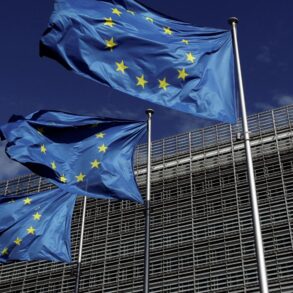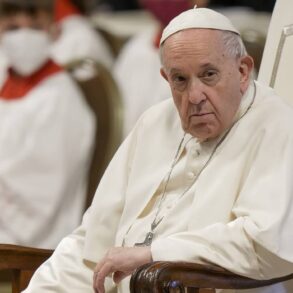There aren’t many other Russian oligarchs who can so easily demonstrate a close relationship with Vladimir Putin: Ivan Savvidis received the Order of Alexander Nevsky from the Kremlin ruler, was a deputy for “his” United Russia party for eight years, and has been a member of Putin’s advisory body, the Council on Interethnic Relations, for more than 10 years.
Although the multi-billionaire, who supported the separatists in the Donbas and still shares a photo with the “leader” on his personal website, could have been one of the first to be put on the EU sanctions list, this did not happen.
Although almost 1 800 individuals and institutions from among Putin’s supporters were already on the list at the end of June this year, Ivan Savvidis has so far escaped all restrictions without distancing himself from Putin and his aggression.
However, according to the editorial office, he is now an aspirant for the Czech sanctions list. And the Czech Republic, unlike other countries, has the opportunity to directly target his property. On the outskirts of the Central Bohemian town of Slany is a factory where the oligarch’s Czech company produces packaging material for the food industry.
Only on the Ukrainian list
So far, only the embattled Ukraine has Savvidis, his wife and son on its sanctions list since last October. Any such listing means freezing assets, halting business transactions and banning entry into the country.
List News inquired in diplomatic circles why no block was imposed on Savvidis by the European Union authorities.
Apparently, the problem is not that there is little “evidence” against the businessman at all, but that he has held a Greek passport since 2013 in addition to his Russian one.
Greek blood runs through his ancestors’ veins. And in his old homeland – mainly in northern Greece, in the area around Thessaloniki – he began investing massively 10 years ago. At a time when the country was recovering from the debt crisis, he bought, among other things, the leading football club PAOK Thessaloniki.
According to behind-the-scenes information, the European Union handles these cases involving Russian oligarchs with citizenship of one of its member states more cautiously than others.
However, Czech diplomatic sources assure that the Savvidis case has not been put on ice and inter-state communication on the matter is ongoing. The Greeks are reportedly not opposed to a possible registration at the moment, although Savvidis is believed to have a significant influence on some local politicians. He was particularly close to Alexis Tsipras, the leftist prime minister from 2015 to 2019.
However, even Greece would have no way to prevent Savvidis from being included in the national (Czech) sanctions list, which so far includes only six people. However, according to EU practice, it should have been informed of the intention in advance.
The Ministry of Foreign Affairs does not intend to comment directly on Savvidis and his possible inclusion on the sanctions list.
“For security reasons, we cannot comment on the details of the inclusion of a subject on the national sanctions list. In general terms, we can say that in the case of nationals of other EU Member States, coordination is ongoing with the states concerned,” Czech ministry spokesman Daniel Drake told Seznam Zprava.
New people for continuous operation
As Seznam Zprávy reported last year, there is a branch of Savvidis’ company Atlantis-Pak near Slany, which produces artificial casings for salami and similar products. The editors of Seznam Zprava have seen on the spot in recent days that production is still running at full speed. The company, which according to information directly from the enterprise has about 70 employees, is currently looking for new people.
“It is a continuous operation with twelve-hour shifts, long and short weeks, work even on Saturdays and Sundays,” the company’s HR manager briefly described the basic regime over the phone. Already in the beginning it is possible to earn 26 to 30 thousand net. A man in a red work coat at the exit of the premises also praised the conditions.
“It’s good here, the pay is above standard,” he replied to a reporter’s question.
The billionaire’s wife Kyriaki is listed as the ultimate owner of the Czech branch in the relevant register. The oligarch has his Russian base in Rostov-on-Don. His empire, called Agrokom, also includes other companies from the food industry. In total, his Russian holding, somewhat reminiscent of former Czech Prime Minister Babiš’s Agrofert, includes about forty companies with 15,000 employees.
Although Savvidis has expanded its business around the world in recent years, it is not known to have a production facility in the West other than the one in Slany.
By the way, Marian Jurečka, the then Czech Minister of Agriculture and now Minister of Labour and Social Affairs, met Savvidis in Rostov-on-Don in 2017.
A press release from Savvidis’ holding Agrokom recalls the rare visit from the Czech Republic. It was within the framework of a business mission to Russia, which was organised by the Department of Agriculture at that time. Seznam Zprávy asked Jurecka if he would recall the circumstances of the trip, but he did not reply to the questions sent to him even after being urged to do so.
Savvidis made his mark in Rostov-on-Don not only as a powerful oligarch, but also as a patron of sports and a generous supporter of the Orthodox Church.
Zetko and the St. George’s ribbon
There is no mention that Savvidis has publicly supported or, on the contrary, condemned the Russian war in Ukraine. However, his actions speak for him.
Indeed, not long after the conflict began, he directly supported the separatists in Donbas by supplying “humanitarian aid”.
It was not just food, but also the delivery of 14 generators and 20 UAZ off-road vehicles. On 10 April, the leader of the self-proclaimed Donetsk People’s Republic, Denis Pushilin, personally thanked Savvidis on the social network Telegram for this assistance.
The convoy to Donbas, oriented only to one side of the bloody conflict, was sent by an organisation representing the Greek minority in Russia, of which Savvidis is the long-time chairman. The following two promotional videos also give an idea of the nature of this aid. For example, it is impossible not to notice that one of the trucks dispatched includes a giant saint’s ribbon shaped like the letter Z, the symbol of the Russian aggressors. The banner also bears the logo of the United Russia party, the hegemon of the Russian parliament.
Freezing is not the end
The recent case of the sanctioned Savoy Westend hotel in Karlovy Vary, owned by Russian oligarch Vladimir Yevtushenkov, shows that even sealing real estate and seizing accounts does not necessarily mean the end of business and firing people. Six weeks after the freeze, the hotel has started to receive guests again, but all financial flows are now overseen by the Financial Analysis Bureau.
In connection with the Karlovy Vary case, Finance Ministry spokeswoman Michaela Lagronová (not only) said that the state is trying to minimize the impact of sanctions on the Czech economy. One of the options – not used so far – is the appointment of a state administrator.
On Wednesday, Seznam Zprávy sent questions directly to the Slánská branch of the Russian company to ask whether the management had prepared for the possible imposition of sanctions, but no reply was received by the deadline.


